





The journey from hospitalization to home care can be a challenging transition for both patients and their caregivers. After receiving treatment or undergoing surgery, returning home signifies the next phase of recovery, where one must adapt to a new environment while managing ongoing medical needs. With careful planning and the right strategies in place, this transition can be made smoother and more manageable. Here are some essential tips for a smooth recovery process:
Before leaving the hospital, ensure that you have a detailed care plan in place. This plan should outline medication schedules, wound care instructions, dietary restrictions and any other specific requirements that will promote optimal recovery. Work closely with your healthcare team to understand the details of your care plan and ask questions to clarify any concerns or uncertainties. Also ensure that anyone assisting in your at-home care fully understands the details of the care plan.
Arrange follow-up appointments with your primary care physician or specialists as recommended by your healthcare team. Communicate effectively with all members of your healthcare team, including doctors, nurses, therapists and home care providers to ensure continuity of care and address any issues promptly.
Make necessary modifications to your home to accommodate your recovery needs. This may include installing grab bars in the bathroom, arranging furniture for ease of mobility or securing assistive devices such as walkers or wheelchairs. Remove any hazards or obstacles that could pose a risk of falls or accidents.
Home hospital beds can help you maintain comfort, safety and independence during recovery. The Lynacare™ HC107 Hi-Low Hospital Bed is a great, affordable option for home care settings as it provides comfort and safety for both patients and caregivers with hi-low bed frame height, auto contour, dual controls and a central locking mechanism.
Create a system for organizing and managing your medications to prevent missed doses or confusion. This may involve using pill organizers, setting reminders or enlisting the help of a caregiver. Ensure that you have an adequate supply of medications, medical supplies and any necessary equipment before leaving the hospital.
Enlist the help of family members, friends or professional caregivers to assist you during your recovery period. Clearly communicate your needs and expectations to your caregivers and delegate tasks accordingly. Don’t hesitate to reach out for support when needed, whether it’s for assistance with daily activities, emotional support or companionship.
Listen to your body and give yourself permission to rest as needed. Avoid overexertion and allow sufficient time for recovery. Incorporate relaxation techniques such as deep breathing exercises, meditation or gentle stretching to reduce stress and promote healing.
Remember that recovery takes time, and it’s normal to experience setbacks or challenges along the way. Be patient with yourself and trust in your body’s ability to heal. Practice self-compassion and kindness towards yourself as you navigate through the ups and downs of the recovery process.
Transitioning from hospital to home care requires careful planning, coordination and support from both healthcare providers and caregivers. By following these tips and strategies, you can facilitate a smoother and more successful recovery journey, allowing you to regain your health and independence with confidence. Remember to prioritize self-care, stay connected with your support network and approach your recovery with patience and resilience.
**The information on this site is not intended or implied to be a substitute for professional medical advice. If you are having a severe and sudden change in physical or mental health, please call 911, contact a local emergency facility or consult with your doctor. Always seek the advice of your physician or other qualified healthcare provider, and never disregard the advice given because of information you have received from our website.**




| Cookie | Duration | Description |
|---|---|---|
| cookielawinfo-checkbox-analytics | 11 months | This cookie is set by GDPR Cookie Consent plugin. The cookie is used to store the user consent for the cookies in the category "Analytics". |
| cookielawinfo-checkbox-functional | 11 months | The cookie is set by GDPR cookie consent to record the user consent for the cookies in the category "Functional". |
| cookielawinfo-checkbox-necessary | 11 months | This cookie is set by GDPR Cookie Consent plugin. The cookies is used to store the user consent for the cookies in the category "Necessary". |
| cookielawinfo-checkbox-others | 11 months | This cookie is set by GDPR Cookie Consent plugin. The cookie is used to store the user consent for the cookies in the category "Other. |
| cookielawinfo-checkbox-performance | 11 months | This cookie is set by GDPR Cookie Consent plugin. The cookie is used to store the user consent for the cookies in the category "Performance". |
| viewed_cookie_policy | 11 months | The cookie is set by the GDPR Cookie Consent plugin and is used to store whether or not user has consented to the use of cookies. It does not store any personal data. |